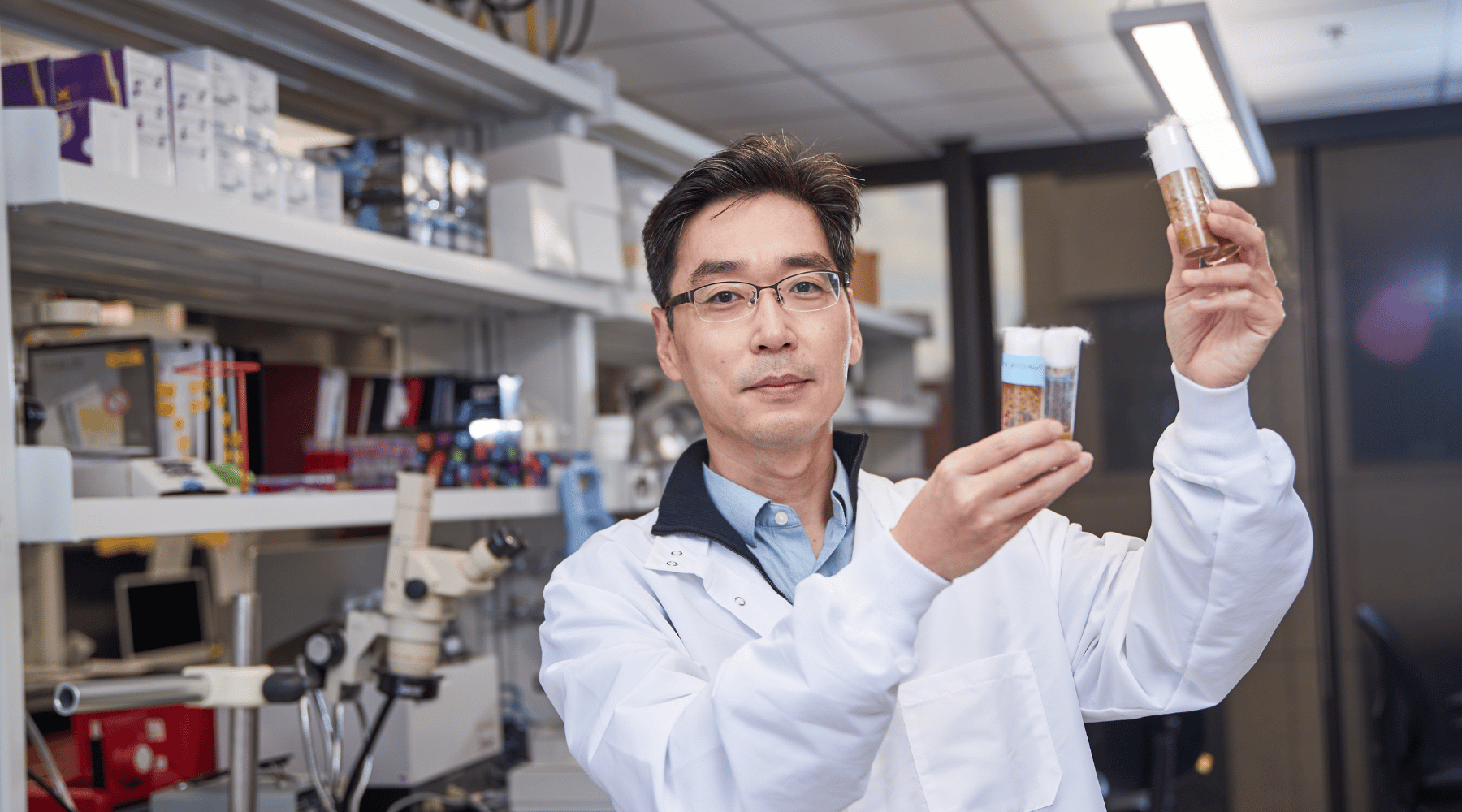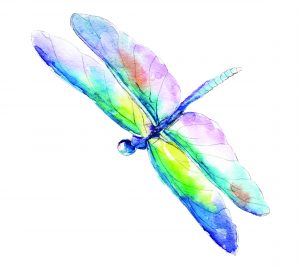Warning: Undefined variable $post_id in /srv/http/omrf.org-2026/site_root/wp-content/themes/omrf-2025/single-findings.php on line 31

On summer days, young Wan Hee Yoon longed to be among the crickets, cicadas and dragonflies that lived outside his family’s apartment in Seoul, South Korea.
As a boy, he’d try to catch the insects, then bring them inside and study them. Fortunately, Yoon’s parents saw the value in their son’s curiosity and allowed him to populate a cage in his room with the tiny creatures.
“I knew even then that I wanted to become a biologist,” Yoon says. What he didn’t know is that one day, an insect would help him discover a rare human disease.
Yoon earned his undergraduate and master’s degrees in biology in South Korea, then worked for five years at a Korean pharmaceutical company. It was only when he decided to pursue his Ph.D. in biological chemistry at Johns Hopkins University School of Medicine that he became reacquainted with insects. Or, more accurately, insect.
When conventional experiments with cells in a petri dish failed to yield the answers he was seeking about the function of a particular human gene, he turned to the fruit fly (or, as it’s technically known, drosophila) for help. The tiny, winged insect shares a surprising amount of DNA with humans. So, it offers researchers a way to look not only at genes themselves, but also how they function in a living, breathing organism.
Yoon learned how to alter genes in the flies and then take note of how those changes, known as variants or mutations, affected the insects. Eventually, he decided to focus his work on genetics because he “wanted to study how genes play a role in human development.”
During a postdoctoral fellowship at the Baylor College of Medicine, Dr. Tamar Harel, a physician-scientist in another lab, sought Yoon’s help in identifying the genetic variant responsible for causing profound neurological delays in two of her patients. Not long before, Yoon had developed a list of more than 100 genes that might be responsible for severe neurological breakdown. From that list, he used experiments in fruit flies to determine that a mutation in a single gene – known as ATAD3A – causes the neurological condition.
That gene plays an important role in the mitochondria, which scientists often refer to as the powerhouse of the cell. In those with a defective copy of ATAD3A, the mitochondria can’t produce energy properly.
With Yoon’s work as a basis, he and Harel established that, in humans, a mutation of that same gene was the culprit behind Harel’s patients’ neurological deficits. Today, people found to have that genetic variant are diagnosed with a condition known as Harel-Yoon syndrome.
Yoon has continued his research on Harel-Yoon syndrome since joining OMRF in 2017. He received a National Institutes of Health grant to further those studies, and with a new grant from the Binational Science Foundation, he aims to develop a form of gene therapy either to silence or fix the defective copies of ATAD3A.
Outside of the lab, Yoon has started a Facebook group for families of people living with Harel-Yoon syndrome. This resource allows him to provide support and information to people profoundly in need of both. The most severe cases often are fatal, while milder forms cause developmental delay, brain malformations, and eye and heart abnormalities. “As recently as three years ago, there were only a few dozen confirmed cases,” Yoon says. “We now think there are more than 100, and the number will continue to grow through continued research and genetic testing.”
Yoon knows he could have focused his work on a condition that affects more people. But, he says, “Many people are already studying cancer. I wanted to do something novel.”
By discovering a new disease, he has. And if that work eventually leads to a treatment or cure for the condition, patients and their families may never know that it all began with a boy and his fascination with insects.
– Read more from the Winter/Spring 2025 edition of Findings President’s Letter: The Life-Changing Impact of Clinical Research The Searcher Family Legacy Voices Ask Dr. James Three-Peat Meeting the Challenge On a Mission Coming to America